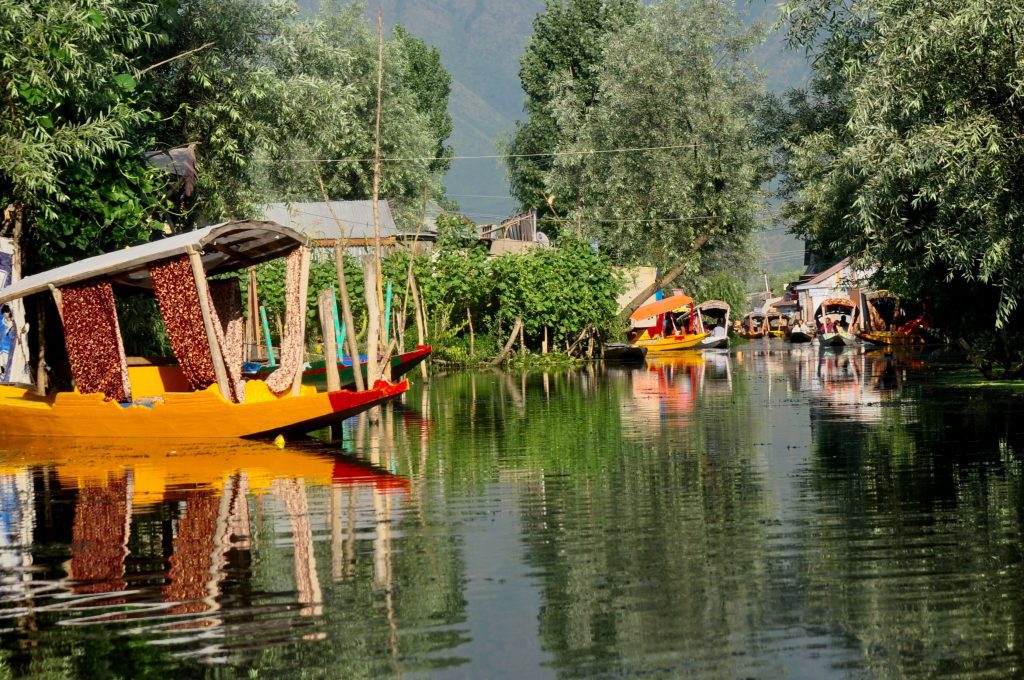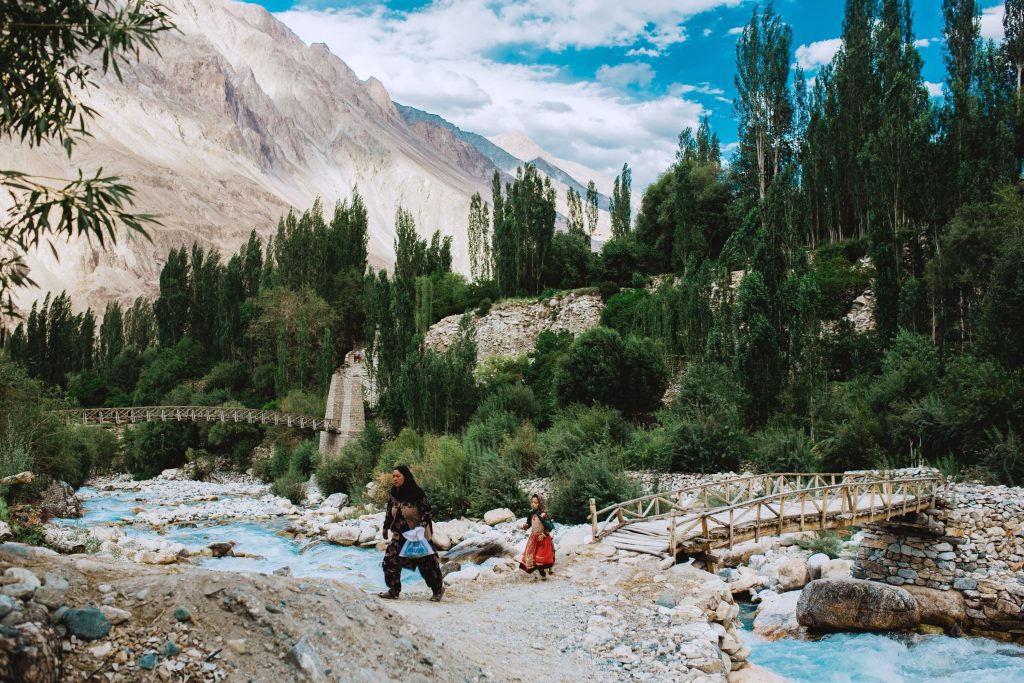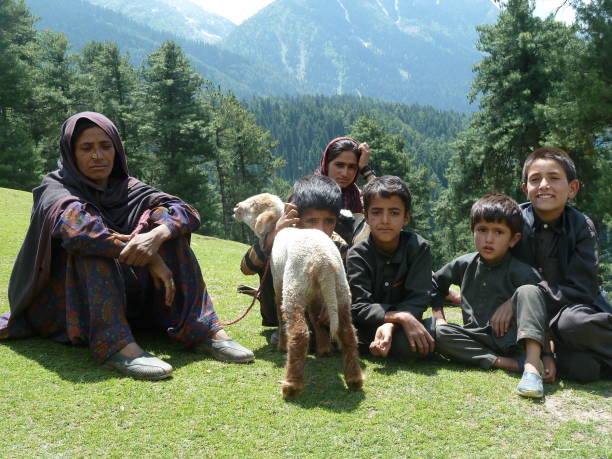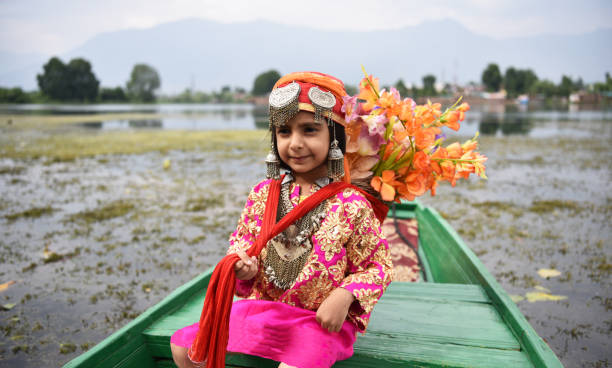
हमीं अस्त ओ हमीं अस्त ओ हमीं अस्त!
Kashmir- The Switzerland of India, Paradise of Earth and venerable with many other similes. It has been always a tourist attraction because of its beauty which makes it a special land. Other than the beauty it has economic significance due to the abundance of natural resources like rivers, falls and a variety of different culture and races.
The worthiness of the land arouses greed in other countries to acquire it and make it their own territory. Sino-India war and Kargil war are the biggest examples of lust for land and power of these nations.
How did Article 370 come into existence?
When India was getting independence from British rule, the conflict arose as to whether Jammu and Kashmir should be a part of India or Pakistan? At that time Jammu and Kashmir was a princely state, ruled by Maharaja Hari Singh. The king, during British rule, was just their puppet, deriving his power from British.

A Hindu king was ruling over a majority of the Muslim population. This lead to communal tension in J&K. The reason for the majority population in the state was enough for Pakistan to make it a Muslim nation, and they sent troops on October 21-22 into the territory.
Sheikh Abdullah, an influential Kashmiri leader and a friend of Pt. Jawahar Lal Nehru opposed the invasion. Both the leaders drafted a document called Instrument of Accession, which was signed by the king due to the panic situation created by the Pakistani military in the state. The instrument ceded J&K to India.
According to the Instrument of Accession, no provisions of The Constitution of India are applicable to the state except for the following matters:-
- Foreign affairs,
- Defence, and
- Communication.
What lies in Article 370?
Article 370 was inserted in Part XXI of the Constitution of India and became operative on 17th November 1952. Initially, the article was considered temporary, transitional and special provisions. The constituent assembly was established to recommend which provisions of Indian constitution shall be applicable in the state or article 370 should be abrogated. The 1954 presidential order was issued, with the consultation of the assembly, expressly stating which articles are enforceable in the state. As the constituent assembly dissolved without abrogating article 370, it was deemed as permanent.
This article provides autonomy to the state to make laws and run by their own separate constitution i.e. Constitution of Jammu&Kashmir. Ultimately, the article limits the power of the legislature i.e. Parliament to make laws in the state, as it requires State Government’s approval to implement any law or amendment in the territory. Preamble and Article 3 of the Constitution of J&K provides that Jammu & Kashmir is an integral part of Jammu & Kashmir. Following are the areas in which the state of J&K enjoys autonomy in law-making and has nothing to do with being consistent to The Constitution of India, as per article 370:-
- Dual citizenship
Kashmiri people are referred to the ethnic group, native to Kashmir valley. They are considered as citizens of India as well as citizens of Kashmir. A non-Kashmiri person residing in Kashmir is considered only as an Indian citizen and “permanent resident” according to the Constitution of J&K. Moreover, if a Kashmiri citizen takes the citizenship of Pakistan and comes back to J&K, he shall again be treated as a citizen of J&K. - Own flag
The article allows to have two flags, one is the tri-colour national flag and the other is state’s own flag. - Emergency provisions
Financial emergency given under article 360 of the Indian Constitution cannot be imposed by Central Govt. A national emergency can be imposed only with the approval of the state, in case of internal disturbance or war. State emergency can be imposed when there is a failure of state machinery. - Gender bias
According to Article 35-A, if a Kashmiri woman marries a non-Kashmiri, she loses her property rights. However, she will be considered as ‘Kashmir Citizen’. But her children are neither considered as Kashmir citizen nor permanent residents, even if they live in Kashmir. It is left to the discretion of state govt. to provide them with the status of ‘permanent residents’. - Outsiders can’t buy land in the state
As per the provisions of Article 35-A, no individual other than a Kashmiri citizen is permitted to buy land or property in the State. - Disrespect of national symbols is no offence
There is no provision in the constitution of J&K that provides punishment to offenders who disrespect national symbols of India. - No amendment under Article 1 of the Indian Constitution can be made with respect to change in the name of state or area of state without prior approval of State Govt.
- The tenure of constitution assembly was 6 years.
- Orders of the Supreme Court are not applicable in the state.
- The official language of the state is Urdu.
- No laws of parliament are applicable there like IPC, CrPC, Contract Act, CPC etc.
The validity of Article 370.
The validity of Article 370 had always been an issue of debate. The government was of the view that no foreign government or foreign organization had ‘locus standi’ in repealing article 370. It is an internal matter of India. Minister of home affairs, G. Kishan Reddy said in written in Rajya Sabha that Jammu and Kashmir is an integral part of India. So, Parliament had the right to repeal the article, as it was just a temporary provision.
People in Jammu were in favour of repealing the article, as they call it justice for the people. But people of Kashmir were in anger and despair when it was being repealed.
Scraping of Article 370.
The abrogation or removal of the article was a complex process. As it required Constituent assembly’s approval, this was not possible because of the communalism of leaders and ministers there and the fact that the assembly was dissolved. In addition, it required a 2/3rd majority of the legislature of India.
To give it an effect, the political move of the Narendra Modi led BJP govt. lead to an amendment in article 367 of the general clause Act, 1897 – stating the meaning of Constituent assembly as the same as the Legislative Assembly. This further lead to the application of Article 356 of the Indian constitution (declaration on president’s rule or state emergency in case of failure of constitutional machinery in the state) in J&K.
On 5th of August 2019, the President of India promulgated the Constitution (Application to Jammu & Kashmir) Order, 2019, passed in both houses of Parliament with 2/3rd majority. The order effectively abrogated the special status provided under Article 370. As per the order, the provisions of the constitution of India were now applicable in the state.
Also, on the 6th of August 2019, article 35-A was repealed, which stated only Kashmiri people can buy land or property in the state. No industrialization or privatization was possible due to this article. In addition, the Jammu and Kashmir Reorganization Act was passed by parliament. It states the division of J&K into two Union Territories: – Union Territory of Ladakh and Union Territory of Jammu and Kashmir.
Repercussions of the Amendment.
Abrogation of article 370 tends to following consequence, now:-
- There shall be only one citizenship for all the Kashmiri people that is, citizenship of India. They shall only be called an Indian citizen.
- Assembly elections will be held once in 5 years as per the Indian Constitution.
- Only one flag will be hoisted in the state like the rest of India, i.e. national flag of India.
- Kashmiri women will be able to marry non-Kashmiri without giving up her property rights.
- People of other states would be able to buy land and property in the state.
- More employment opportunities can be fetched by the people of the state, as privatization and industrialization would become easy in the territory.
- Ladakh has become a union territory and ceases to be a part of Jammu and Kashmir. So the people of Ladakh cannot take part in electing MLA’s in Legislative Assembly of J&K. But they can continue to vote in parliamentary elections.
Modi Government – Dictatorship of the Majority Government?
Many people and the opposition parties, plus, the whole of Pakistan called this political move as a dictatorship of a majority government. In my opinion, dictatorship is not always bad if it brings a positive outcome for the masses. As we all get scolded and dominated by our parents at least once, but the result made us realize that what they did was the best thing for us. Likewise, the chaos, emergency circumstances, and the complexities faced by Kashmiri people in the process would bring sweet fruits in the coming future.

The whole world has witnessed terrorism and invasion done by neighbouring countries like Pakistan and China. There had been wars at the borders since independence which is still in continuance since then, the situation still is bad at the national borders. Moreover, leaders of J&K were misleading people to become anti-nationalists by either declaring themselves as part of Pakistan or a separate nation. Innocent people were only the pawns of political leaders of the state, a medium to quench their thirst for power.
Inclusion or unification of J&K with India would bring opportunities for better employment, education, proper medical facilities, modern technology, and overall growth and development of the people and ultimately the state.

